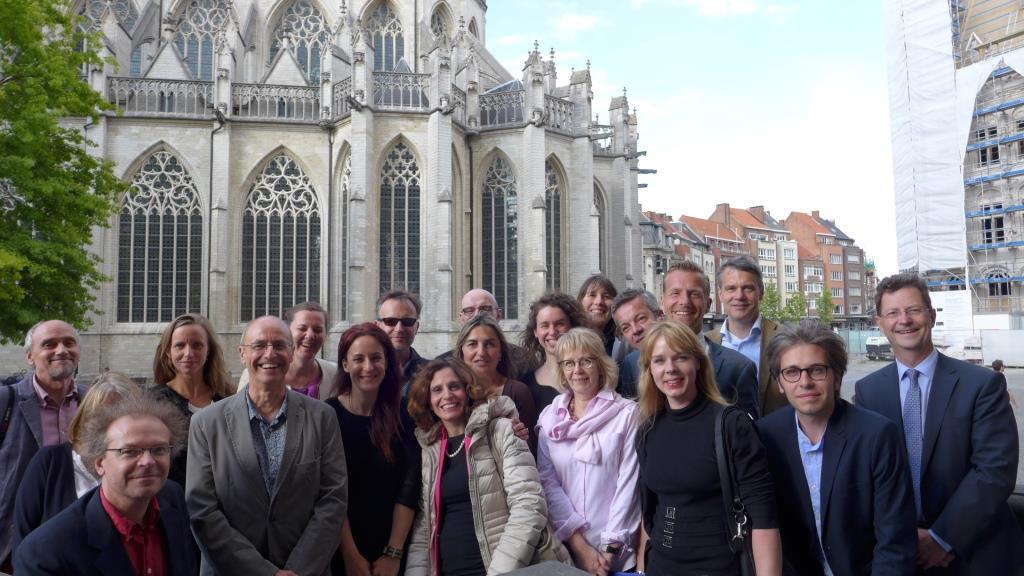A meeting in Leuven marked the end of the ALTERheritage project. The focus of the event was on educational and management aspects of conservation.

LEUVEN – The last ALTERheritage meeting took place on 15 and 16 June 2015. It is organised by Raymond Lemaire International Centre for Conservation (RLICC), KU Leuven, together with the Centre for Religious Art and Culture (CRKC) and KADOC Documentation and Research Centre on Religion, Culture and Society. The focus of the last ALTERheritage meeting was on educational and management aspects of conservation.
Leuven is the capital of the province of Flemish Brabant in the Flemish Region. It is a university town with a rich Catholic heritage, including one two World Heritage site – the Beguinage and the belfry of St Peter’s church. The area of Leuven is now home to a hive of innovation in architecture, art and conservation.
On 15 June, the Raymond Lemaire International Centre for Conservation (RLICC) welcomed the ALTERheritage partners form across Europe in the Arenberg Castle and invited seven speakers to talk about educational and management aspects of conservation in the University of Leuven and in Flanders.
RLICC provides an international and interdisciplinary advanced master programme in conservation of monuments and sites that includes religious heritage, management and preventive conservation of heritage. Established in 1976 at the initiative of the International Council of Monuments and Sites (ICOMOS), RLICC has educated several hundreds of heritage professionals from all continents.
The issue of how the University of Leuven uses and manages its numerous historic buildings, especially the adapted former religious buildings, has also been developed. Other speakers presented the policy and the tools developed by the Flemish Region for the management of parish churches in Flanders, as well as the original contribution of ‘Open Churches’ to the valorisation of church heritage.
About the ALTERheritage project
Europe’s religious heritage shares threats of under-use, but also problems with managing large numbers of visitors. The sector has much to gain from increased international and inter-sectorial exchange to find good-practice models for building the capacity of the practitioners. The ALTERheritage project aimed at increase the capacity of vocational learning targeted at practicing specialists involved in conserving, managing, and regenerating religious heritage, benefitting from international and interdisciplinary exchange of knowledge and resources.
FRH – Future for Religious Heritage is the co-ordinating partner of the consortium.
The project consisted of a series of meetings, hosted by partners from The Netherlands, England, Sweden, Germany and Spain and Belgium from October 2013 to June 2015. The partners presented guidelines, learning tools or methods that they are developing, and they will assess how the material can be adapted to their own circumstances.
Video Gallery





Follow us: